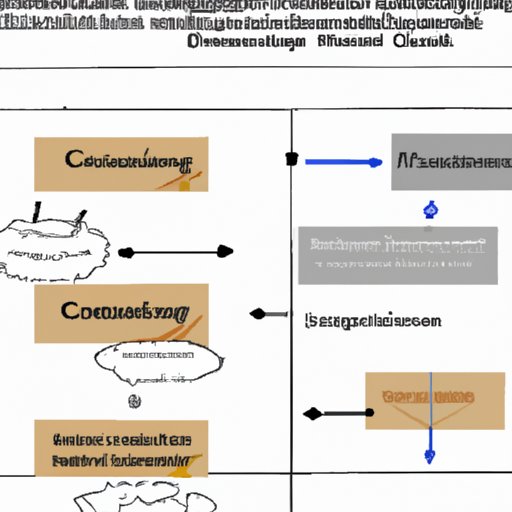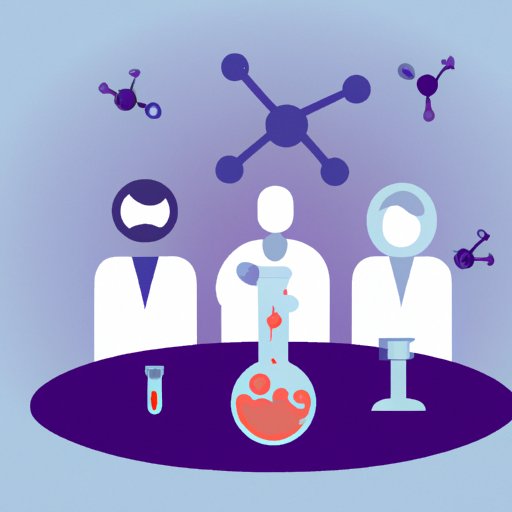Introduction
Control is a key concept in science. It refers to the process of isolating and testing a single factor in an experiment to determine its effects on the outcome. Control is used in many different scientific disciplines, from medicine to physics, to ensure that the results of an experiment are accurate and reliable. A control group is a group of subjects or items that are used as a standard against which to measure the results of an experiment.
The use of control groups in scientific research is essential in order to ensure that the results of an experiment are valid and reliable. By using control groups, scientists are able to isolate and test a single factor in an experiment and compare the results to those of the control group. This allows them to better understand the effects of that factor on the outcome of the experiment.

Exploring the Role of Controls in Scientific Experiments
A control group is a group of individuals or objects that are used as a standard against which to measure the results of an experiment. The control group is typically composed of individuals or objects that are similar to the experimental group in all relevant factors, except for the factor being tested. For example, if a scientist is studying the effects of a new medication on blood pressure, the control group would be composed of individuals who are similar to the experimental group in terms of age, gender, health status, etc. but who do not take the medication.
In a scientific experiment, the researcher will typically compare the results of the control group to those of the experimental group in order to determine the effects of the factor being tested. This comparison allows the researcher to determine whether the factor being tested has any effect on the outcome of the experiment. In addition, the control group can also be used to identify any potential biases or confounding variables that may have affected the results of the experiment.
Examining the Benefits of Using Control Groups in Scientific Research
Control groups play an important role in scientific research, as they help scientists to better understand the effects of a particular factor on the outcome of an experiment. By comparing the results of the control group to those of the experimental group, scientists can identify any potential biases or confounding variables that may have affected the results of the experiment. In addition, control groups can also be used to identify any potential interactions between different factors that may have influenced the results of the experiment.
One of the most important benefits of using control groups in scientific research is the ability to control for potential bias. Bias occurs when a researcher’s beliefs about a particular factor influence the results of an experiment. For example, if a researcher believes that a particular medication will have a positive effect on blood pressure, this belief may influence the results of the experiment. By using a control group, the researcher can compare the results of the experimental group to those of the control group and determine whether the bias had any effect on the results.
In addition, control groups also allow scientists to understand the significance of control variables in scientific studies. Control variables are factors that are held constant across all groups in an experiment in order to ensure that the results of the experiment are valid and reliable. For example, if a scientist is studying the effects of a new medication on blood pressure, he or she must ensure that all other factors, such as diet, exercise, and lifestyle, remain the same for both the experimental and control groups. By using a control group, the researcher can more accurately determine the effects of the new medication on blood pressure.
Conclusion
Control groups are an essential factor in scientific research, as they allow researchers to understand the true effects of their experiments by controlling for potential bias and other variables. Control groups enable researchers to gain a better understanding of the effects of a given factor on the outcome of an experiment, and also help to identify any potential interactions between different factors that may have affected the results of the experiment. By using control groups, scientists can ensure that the results of their experiments are valid and reliable.
In conclusion, control groups play an important role in scientific research, and are essential in order to ensure the validity and reliability of an experiment’s results. By using control groups, scientists can better understand the effects of a particular factor on the outcome of an experiment, and can also identify any potential biases or confounding variables that may have affected the results.
(Note: Is this article not meeting your expectations? Do you have knowledge or insights to share? Unlock new opportunities and expand your reach by joining our authors team. Click Registration to join us and share your expertise with our readers.)
